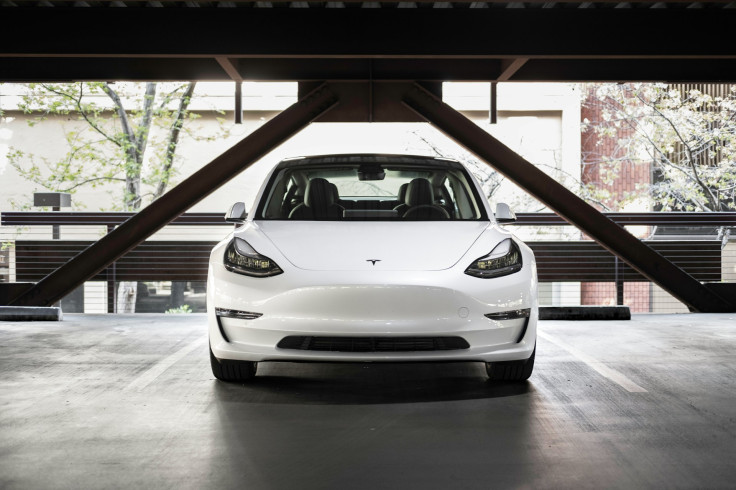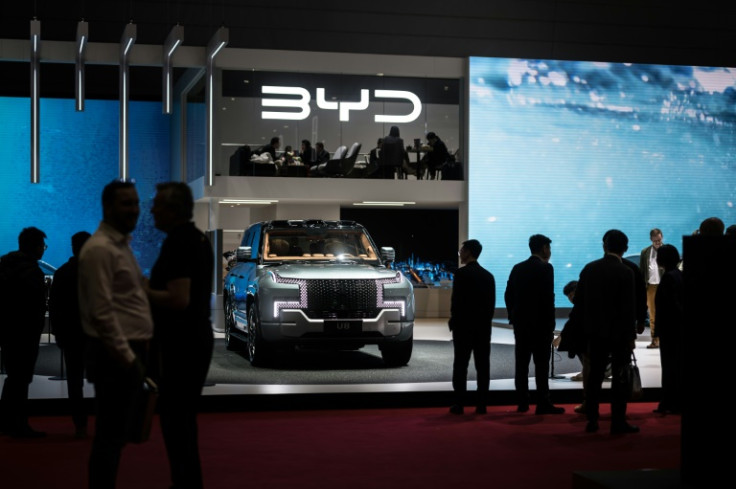Tesla UK Sales Decline: Elon Musk EV Company Struggles - What's Going To Happen?
Analysts cite Elon Musk's politics and cheaper Chinese EVs as key factors driving UK consumers away from Tesla

Tesla's fortunes in the UK have taken a sharp downturn, with July 2025 new car registrations falling by nearly 60 per cent to just 987 vehicles. The figures mark one of the steepest setbacks for the US manufacturer since its entry into the British market, signalling growing pressure on the brand.
The decline coincides with intensifying competition from Chinese rivals and public unease over Elon Musk's political interventions, which appear to be affecting consumer sentiment. Once viewed as the undisputed leader of the electric vehicle (EV) transition, Tesla is now facing questions about whether it can retain relevance in an increasingly crowded UK market.
Sales Slump and Market Share
Figures from the Society of Motor Manufacturers and Traders (SMMT) show that Tesla's UK registrations dropped by 60 per cent year-on-year in July, compared with a modest 5 per cent decline in the overall car market. The fall reduced Tesla's market share from 1.67 per cent to just 0.7 per cent.
In contrast, Chinese manufacturer BYD registered a fourfold increase, selling 3,184 cars in the same month, according to the Financial Times. Demand for battery EVs overall grew by 9.1 per cent, indicating that interest in EVs remains strong but that sales are shifting towards lower-cost competitors, The Guardian reported.
Why Sales Are Falling
Industry analysts attribute Tesla's struggles to a combination of brand erosion and competitive pricing. Some point to Musk's outspoken political affiliations, including his support for Donald Trump, which have alienated sections of European and UK buyers, according to Reuters.
At the same time, price-sensitive consumers are being drawn to aggressively priced alternatives. BYD's Dolphin Surf, which starts at around £18,000, undercuts Tesla's entry-level models by a significant margin. The absence of UK tariffs on Chinese-made EVs has widened the gap further, Business Insider noted.

Discounts and Diversification
In response to weakening demand, Tesla has turned to heavy discounting and financing deals. Leasing companies have been offered reductions of up to 40 per cent, allowing monthly payments on the Model 3 to start at roughly £252 and the Model Y from £377, The Times reported.
Zero-interest finance options have also been introduced. Analysts estimate these could cost Tesla around £6,000 over three years on a £40,000 vehicle, a strategy designed to shift inventory without cutting retail prices outright and damaging used EV values.
Beyond automotive sales, Tesla has applied to Ofgem for a UK electricity supply licence. Industry observers say this could allow the firm to bundle home energy solutions with vehicle sales, creating new revenue streams as its automotive margins come under strain, according to Manufacturing Digital.
Wider UK Context
The sales slump comes as the UK government maintains its push towards its 2035 deadline to end the sale of new petrol and diesel cars. While EV adoption continues to rise, affordability remains a central concern for many drivers. Analysts, like Tim Levin of InsideEVs, say Tesla's ability to compete with cheaper rivals will be crucial to regaining momentum in Britain.
Tesla's sharp decline in UK registrations highlights a brand under mounting pressure from shifting consumer sentiment and aggressive competition. While reliance on discounts and diversification into energy services may provide short-term relief, analysts warn that the company must restore trust among British drivers and deliver fresh product innovation to hold its place in the market.
© Copyright IBTimes 2025. All rights reserved.





















